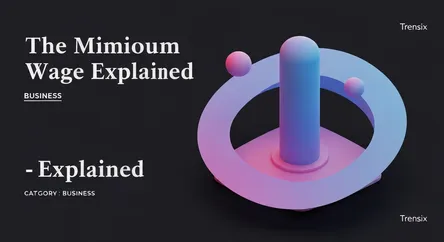Business
The Minimum Wage Explained

Discover the minimum wage, the legally mandated lowest hourly pay. Learn why it's a hot topic and how it impacts workers, businesses, and the economy.
What is it?
The minimum wage is the lowest hourly, daily, or monthly remuneration that employers are legally required to pay their workers. Established by law, this wage floor is intended to protect low-income employees from exploitation and ensure a basic standard of living. Rates can vary significantly, as they can be set by federal, state, or even local governments, with many states and cities mandating higher rates than the federal level to reflect regional costs of living.
Why is it trending?
The minimum wage is a constant subject of intense political and economic debate. It's trending due to rising inflation and growing concerns about the cost of living, which have amplified calls for a "living wage" that can cover basic necessities. Campaigns like the "Fight for $15" have brought the issue to the forefront, sparking discussions about income inequality and corporate responsibility. Economists and policymakers continuously debate the optimal level for the minimum wage, weighing its benefits against potential economic drawbacks.
How does it affect people?
For low-wage workers, an increase in the minimum wage can directly boost income, potentially lifting families out of poverty and improving their quality of life. However, the effects are complex. Some businesses may respond to higher labor costs by raising prices for consumers, reducing staff hours, or slowing down hiring. For business owners, particularly small businesses, it can squeeze profit margins and force difficult operational decisions. The overall impact on employment and the broader economy remains one of the most studied and debated topics in modern economics.